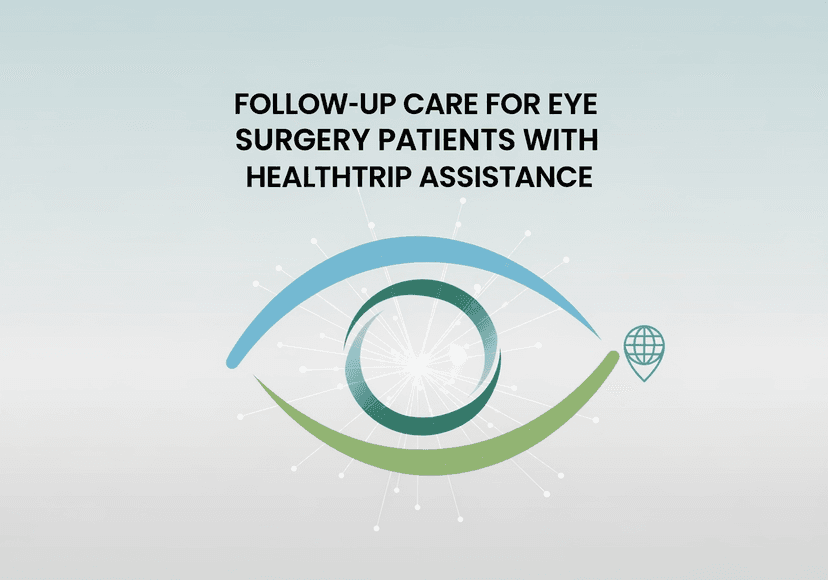
Advances in Gastroenterology: What Patients Need to Know
29 Aug, 2023
Introduction
The field of gastroenterology, which focuses on the health of the digestive system, has seen remarkable advancements in recent years. These breakthroughs have not only improved our understanding of gastrointestinal conditions but have also revolutionized diagnosis, treatment, and patient care. Whether you're someone dealing with digestive issues or simply curious about the latest developments in the field, here's what you need to know about the advances in gastroenterology.
Precision Medicine and Personalized Treatment
Tailoring Treatment to Individual Needs
One of the most significant developments in gastroenterology is the move towards precision medicine. This approach takes into account an individual's genetic makeup, lifestyle, and other factors to tailor treatment plans specifically to their needs. In the past, patients with similar symptoms might have received similar treatments. However, with advancements in genetic testing and molecular profiling, doctors can now identify unique characteristics of a patient's condition and provide targeted therapies. This not only enhances the effectiveness of treatment but also reduces potential side effects.
Most popular procedures in India
Non-Invasive Diagnostic Techniques
Revolutionizing Diagnostics with Technology
Traditionally, diagnosing gastrointestinal disorders often required invasive procedures such as endoscopies or colonoscopies. However, advances in imaging technology and diagnostic techniques have led to the development of non-invasive alternatives. Capsule endoscopy, for instance, involves swallowing a small camera capsule that captures images of the digestive tract as it passes through the body. This technology allows doctors to visualize the small intestine without the need for invasive procedures. Similarly, advanced imaging techniques like MRI and CT scans provide detailed images of the digestive organs, aiding in the diagnosis of various conditions.
Microbiome Research and Gut Health
Unveiling the Secrets of the Gut Microbiome
The gut microbiome, a complex community of microorganisms living in our digestive tract, has gained significant attention in recent years. Research into the microbiome's role in digestion, immune function, and overall health has exploded. Advances in DNA sequencing have enabled scientists to identify and study various microorganisms present in the gut. This has led to insights into conditions like irritable bowel syndrome (IBS), inflammatory bowel disease (IBD), and even obesity. As a result, we're seeing the emergence of microbiome-based therapies, such as fecal microbiota transplantation, which aims to restore a healthy microbial balance in the gut.
Wellness Treatments
Give yourself the time to relax
Lowest Prices Guaranteed!

Lowest Prices Guaranteed!
Minimally Invasive Procedures
Surgical Innovation: Smaller Incisions, Faster Recovery
For patients requiring surgical intervention, minimally invasive techniques have become increasingly common. Laparoscopic and robotic-assisted surgeries offer several benefits over traditional open surgeries, including smaller incisions, reduced pain, shorter hospital stays, and quicker recovery times. These techniques are now used for procedures like gallbladder removal, hernia repair, and even certain types of colorectal surgeries. Minimally invasive approaches not only improve patient outcomes but also enhance the overall surgical experience.
Therapeutic Endoscopy
Beyond Diagnosis: Endoscopy as a Treatment
Endoscopy, the practice of using a flexible tube with a camera to visualize the digestive tract, has evolved beyond diagnosis to include therapeutic applications. Advanced endoscopic procedures can now remove precancerous polyps, treat bleeding ulcers, dilate narrowed areas in the esophagus or colon, and even place stents to keep passages open. This means that many patients can avoid traditional surgeries and experience quicker recovery times with these minimally invasive procedures.
Patient Empowerment and Education
Shaping the Future: Active Patient Participation
As the field of gastroenterology advances, patient empowerment and education play a crucial role. Patients are no longer passive recipients of medical care but active participants in their health journey. With the wealth of information available online, patients can educate themselves about various digestive conditions, treatment options, and the latest advancements. However, it's essential to approach online information critically and consult with qualified healthcare professionals for personalized guidance.
Lifestyle and Dietary Interventions
Nourishing Digestive Well-being
Advancements in gastroenterology have also shed light on the significance of lifestyle and dietary interventions in maintaining digestive health. Research has highlighted the connection between diet, stress, and gastrointestinal conditions. For example, certain diets, like the low-FODMAP diet, have been shown to help manage symptoms of conditions like IBS. Patients are now encouraged to work with registered dietitians to create personalized eating plans that support their digestive well-being.
Telemedicine and Remote Monitoring
Virtual Healthcare: Consultations from Afar
The digital age has brought about another game-changing advancement in healthcare: telemedicine. Especially relevant in today's world, telemedicine allows patients to consult with gastroenterologists and other healthcare providers remotely. This is particularly beneficial for follow-up appointments, discussing test results, or seeking advice for minor concerns. Additionally, wearable devices and mobile apps enable patients to monitor their symptoms, diet, and exercise, providing valuable data for doctors to make informed decisions about their care.
Early Detection and Prevention
Catching Problems Early: Screening and Genetic Testing
Advances in gastroenterology have also contributed to the early detection and prevention of digestive diseases. Screening tests for colorectal cancer, such as colonoscopies, have proven effective in identifying precancerous polyps and tumors at an early, more treatable stage. Furthermore, with the understanding that some gastrointestinal conditions have a genetic component, individuals with a family history of certain diseases can undergo genetic testing to assess their risk and take preventive measures.
Collaboration and Multidisciplinary Care
Team Approach: Comprehensive Digestive Health Care
Another significant development is the emphasis on multidisciplinary care. Gastroenterologists are increasingly collaborating with other medical specialties, such as nutritionists, psychologists, and surgeons, to provide comprehensive care to patients. This approach recognizes that digestive health is influenced by various factors, including mental health and overall well-being.
Looking Ahead: Future Directions in Gastroenterology
Paving the Way for Innovation and Progress
As we move forward, the advances in gastroenterology will continue to shape the landscape of healthcare. Patient-centered care, precision medicine, and the integration of technology are likely to drive further innovation. Patients can look forward to more accurate diagnoses, less invasive treatments, and a greater emphasis on preventive measures. Staying informed about these advancements and maintaining a proactive approach to digestive health will empower individuals to make informed decisions and lead healthier lives.
How can we help with the treatment?
If you're on the lookout for treatment in India, Thailand, Singapore, Malaysia, UAE, and Turkey, let Healthtrip be your compass. We will serve as your guide throughout your medical treatment. We'll be by your side, in person, even before your medical journey commences. The following will be provided to you:
- Connect with renowned doctors from a network spanning 35+ countries and access the world's largest health travel platform.
- Collaboration with 335+ top hospitals , including Fortis and Medanta.
- Comprehensive treatments from Neuro to Cardiac to Transplants, Aesthetics, and Wellness.
- Post-treatment care and assistance.
- Teleconsultations at $1/minute with leading surgeons.
- Trusted by 44,000+ patients for appointments, travel, visa, and forex assistance.
- Access top treatments and packages, such as Angiograms and many more.
- Gain insights from genuine patient experiences and testimonials.
- Stay updated with our medical blog.
- 24/7 unwavering support, from hospital formalities to travel arrangements or emergencies.
- Pre-scheduled specialist appointments.
- Prompt emergency assistance, ensuring safety.
Our success stories
Conclusion
The field of gastroenterology is undergoing a rapid transformation due to these remarkable advances. From precision medicine and non-invasive diagnostics to microbiome research and innovative surgical techniques, patients now have access to more effective and tailored treatments than ever before. As the understanding of the digestive system continues to grow, it's likely that even more exciting breakthroughs are on the horizon. If you're experiencing digestive issues, it's essential to stay informed about these advancements and work closely with your healthcare provider to explore the best treatment options for your specific needs.
Read more:
Most popular wellness packages
Related Blogs

Complete Cost Breakdown of Eye Surgery with Healthtrip
Learn about doctors, hospitals, procedures, and recovery for eye surgery

How to Prepare for Your Eye Surgery in India
Learn about doctors, hospitals, procedures, and recovery for eye surgery

Side Effects and Risk Management of Eye Surgery
Learn about doctors, hospitals, procedures, and recovery for eye surgery

Follow-Up Care for Eye Surgery Patients with Healthtrip Assistance
Learn about doctors, hospitals, procedures, and recovery for eye surgery

Best Hospital Infrastructure for Eye Surgery
Learn about doctors, hospitals, procedures, and recovery for eye surgery

What to Expect During a Eye Surgery Consultation
Learn about doctors, hospitals, procedures, and recovery for eye surgery










